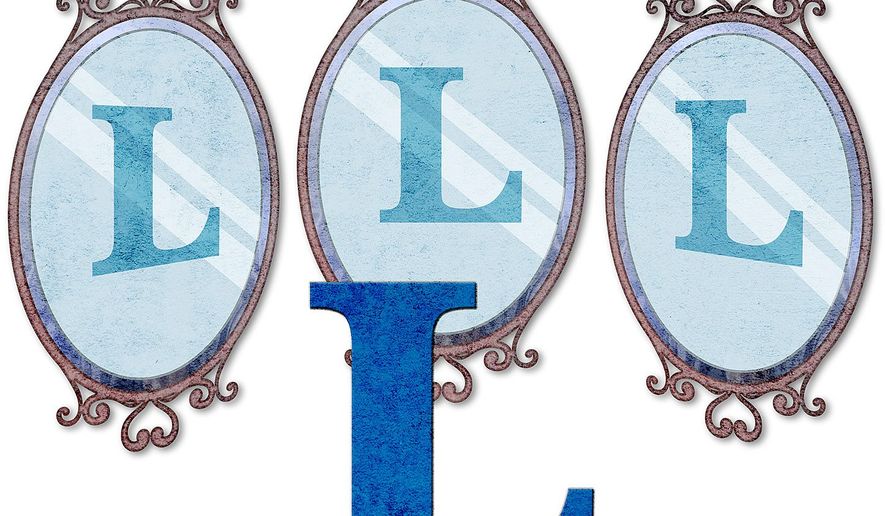OPINION:
Conservatives and liberals today rarely talk with — as opposed to past — each other. They disagree not just on the solutions to societal problems but on what those problems might be, and see very different worlds as they tune into their favorite cable news or internet outlets. In short, they live on different planets and speak different languages. It’s little wonder they don’t get along, or even begin to understand each other.
After the 1994 elections in which Republicans seized control of Congress for the first time in 40 years, Michael Barone, as astute a political analyst as anyone is likely to run across, observed that if the trends he saw then continued, liberals would retreat to what he called their natural base: “university towns and inner cities.” That prediction has proven right. In today’s world few progressives even know any conservatives. They are either shocked or afraid of them once they realize these strange creatures reject many of their most basic beliefs and more “sophisticated” solutions to the world’s problems. Viewed from Georgetown, Manhattan or San Francisco, in fact, conservatives appeared to be some sort of alien life form that progressives believed could be isolated and ignored — until last November. It was why Hillary Clinton who, though she lived for a time in Bill Clinton’s Arkansas but was really a creature of the posh Chicago suburbs and the Ivy League, was able to dismiss millions of them as “deplorables.”
So certain are they of their own superiority that politicians who win elections based on support from these deplorables are considered not just wrong on the issues, but an existential threat to all humanity. Ronald Reagan was dismissed as an incompetent actor who read his lines as president and who, though he might in fact be “an amiable dunce,” was such a threat to world peace that Sen. Edward Kennedy in 1983 hustled off former Senate colleague John Tunney to Moscow to meet with Soviet leaders in the hope that they might cooperate in an effort to get rid of the man. George W. Bush was decried as a “Nazi” and progressives applauded those who fantasized about assassinating him to save the world. When I attended an off-the-record conference sponsored by European Trilateral Commission while Mr. Bush occupied the White House, the conference was opened by the then-head of the European Union who announced that the earth faced three existential threats; “Global warming, HIV-AIDS and George W. Bush.”
Now even as the sophisticated coastal and Hollywood elites attack President Trump even more stridently, their political leadership is struggling with the problem of why those deplorables don’t get it. Since few have ever met, dined with or listened to a voter outside the progressive bubbles in which they live and work, they are parachuting into flyover country to see what they have to do to win the support of working- and middle-class Americans who a generation or so ago could be reliably counted on to vote Democrat.
These “safaris” are often paid for by the Democratic Party and are as patronizing as one might imagine. Most of those undertaking these trips aren’t interested in the voters they can no longer count on except to the extent that listening to them might help to better sell their own agenda during future campaigns. As The Atlantic recently reported, progressives who do take to the hinterlands come away shocked by the views of those they meet, but nevertheless manage to reaffirm the validity of their own nostrums.
Observing all this from his progressive neighborhood in safely liberal Washington, D.C. bubble, former National Public Radio CEO Ken Stern decided to leave the bubble not for the cynical reasons behind these safaris, but because he wanted to know if those with whom he disagreed were smoking something, had mental problems or were as stupid and deplorable as the politicians peopling his world believe. He took a full year to immerse himself in the America that Hillary Clinton ignored. He went hunting in Texas, attended evangelical church services, NASCAR races and Tea Party rallies. He watched Fox News and listened to Breitbart, discovering in the process that the people he met were neither fools nor deplorable, and that while they live in a different world than he, they know some things he didn’t and challenged many of what most of his friends inside the bubble considered unchallengeable.
The year didn’t transform him into one of Rush Limbaugh’s “Dittoheads,” but it changed him. Thus, the title of his book: “Republican Like Me: How I left the Liberal Bubble and Learned to Love the Right.” Unlike the safaris into the land of the deplorables undertaken by progressive activists, Mr. Stern left the bubble with an open mind and benefited greatly from immersion in a country he never really knew existed.
• David A. Keene is editor at large at The Washington Times.




Please read our comment policy before commenting.